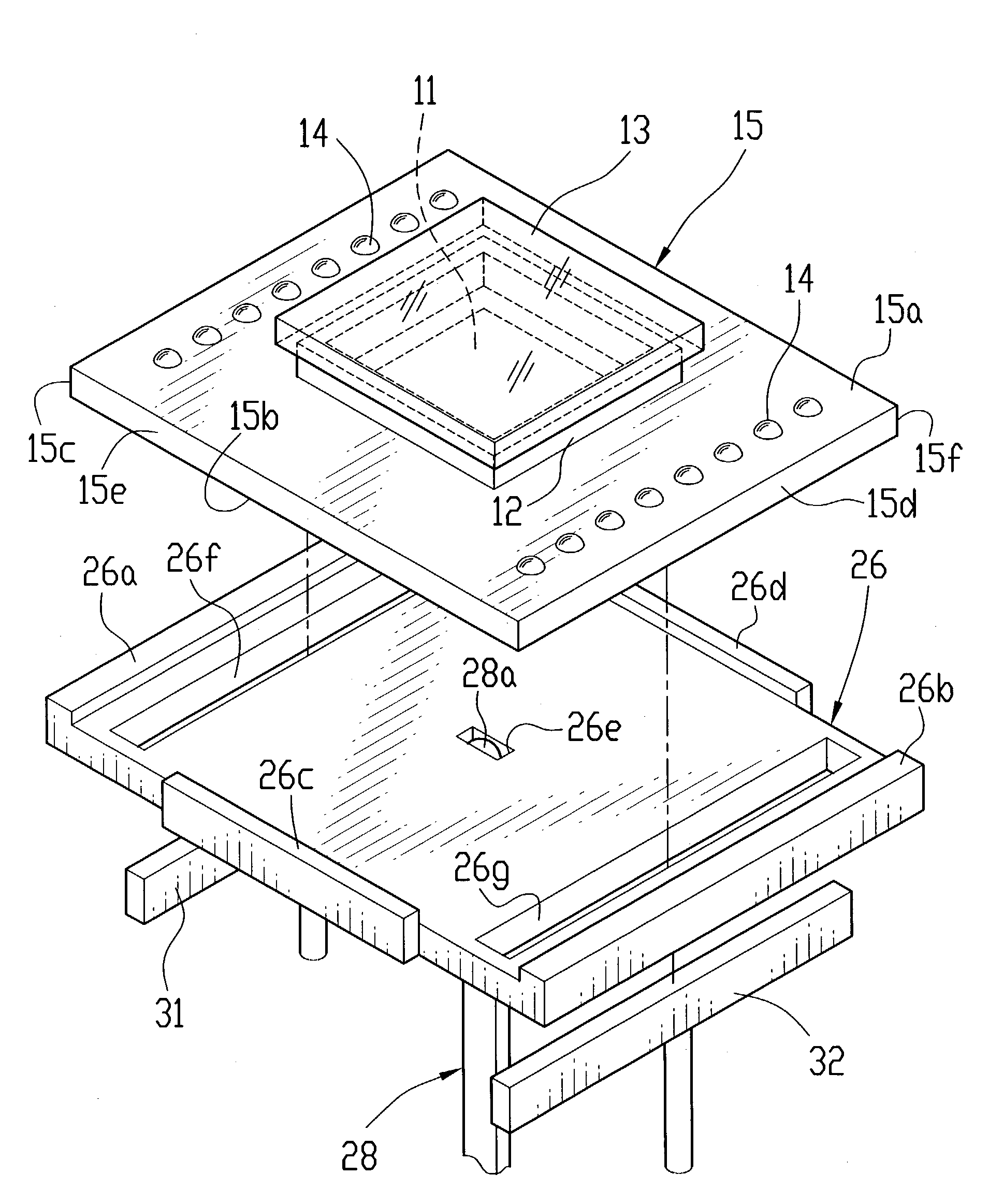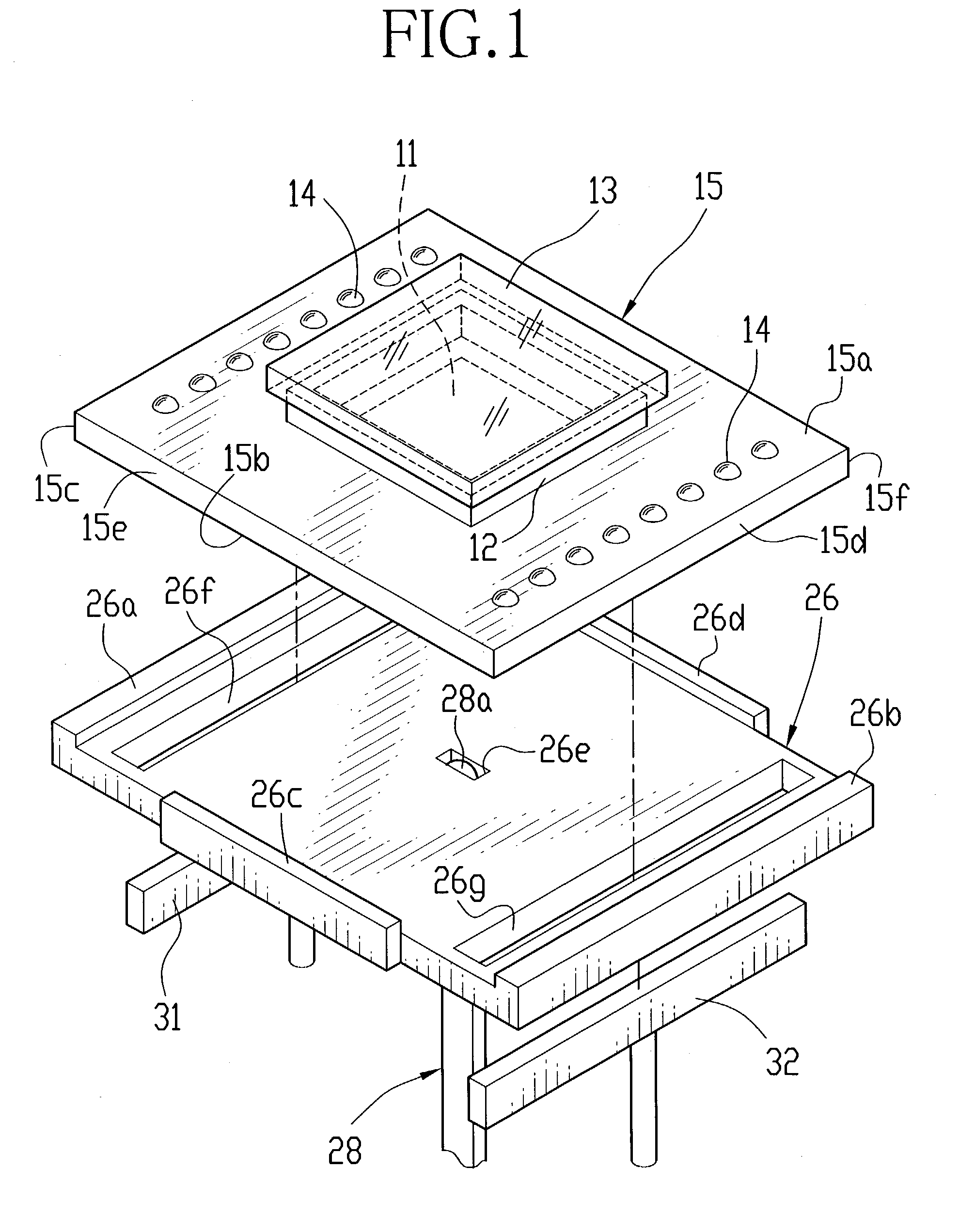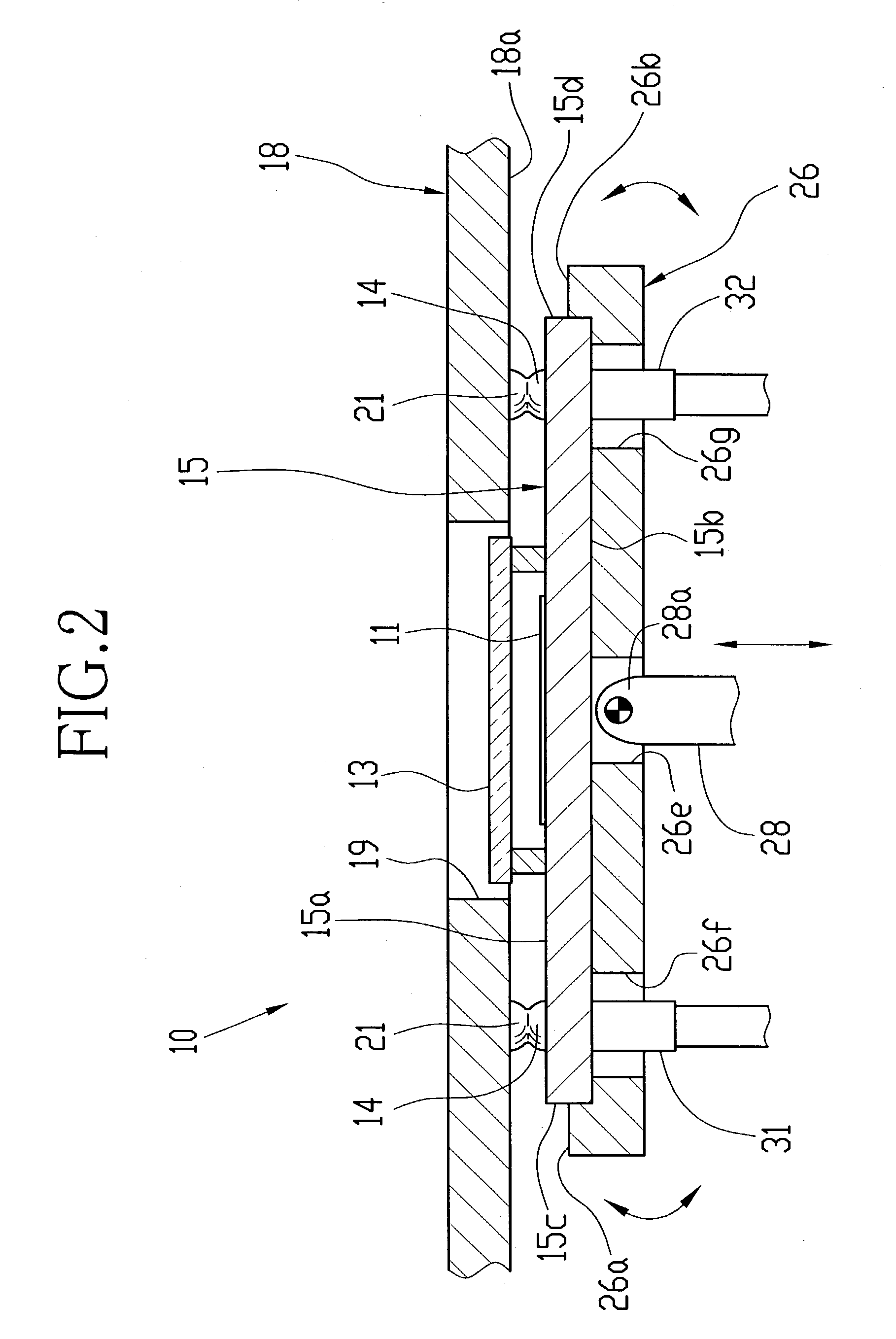Imaging device and manufacturing method for imaging device
a manufacturing method and imaging device technology, applied in the field of imaging devices, can solve the problems of miniaturization of cameras, inability to shorten the length of cameras in an optical axis direction, and inability to shorten the length of cameras, so as to prevent poor connection and secure fix the imaging device chip on the substrate.
- Summary
- Abstract
- Description
- Claims
- Application Information
AI Technical Summary
Benefits of technology
Problems solved by technology
Method used
Image
Examples
first embodiment
[0046](First Embodiment)
[0047]Referring to FIGS. 1 and 2, an imaging device 10 comprises a CCD (charge coupled device) chip 15 and a substrate 18 on which the CCD chip 15 is fixed. A light receiving surface 11 provided in the middle of the CCD chip is covered with a cover glass 13 via a frame shaped spacer 12. On the front surface 15a of the CCD chip 15, plural solder balls as chip terminals 14 are arranged in two lines. The lines of the chip terminals 14 are symmetrically disposed in parallel with each other across the light receiving surface 11.
[0048]An opening 19 is formed in the substrate 18. The cover glass 13 fits into the opening 19. On the rear surface 18a of the substrate 18, plural solder balls as substrate terminals 21 are arranged in two lines, which correspond to the lines of the chip terminals 14. Each of the substrate terminals 21 is soldered to the corresponding chip terminal 14. Various parts (not illustrated) for driving the CCD chip 15 are mounted on the substrate...
second embodiment
[0058](Second Embodiment)
[0059]Referring to FIGS. 4 and 5, an imaging device according to the second embodiment comprises the CCD chip 15 which is identical with that of the first embodiment, and a substrate 43 on which the CCD chip 15 is fixed. The substrate terminals 44 arranged on the substrate 43 are not solder balls as described in the first embodiment but plate shaped solder lands. The contact area of the chip terminal 14 with the solder land 44 is larger than that with the solder ball. Accordingly, the chip terminals 14 securely come into contact with the substrate terminals 44, so that a wide range of manufacturing error is allowable in comparison with a case of the solder balls.
[0060]A jig 40 is similar to that of the first embodiment in shape, but at least one pair of opposite protrusions 40a and 40b is higher than the thickness of the CCD chip 15. When the CCD chip 15 is mounted on the jig 40, the chip terminals 14 protrude from the protrusions 40a and 40b, because the ch...
third embodiment
[0063](Third Embodiment)
[0064]FIG. 6 shows a CCD chip 47 composing an imaging device according to the third embodiment. Chip terminals 48 are so arranged on the front surface 47a of the CCD chip 47 as to surround a light receiving surface 49.
[0065]A T-shaped jig 45 the ends 45a to 45c of which bend perpendicularly is used for fixing the CCD chip 47 on a substrate. When the jig 45 moves in X and Y directions on a horizontal plane, the ends 45a to 45c make contact with the side surfaces 47c, 47d, and 47e of the CCD chip 47 respectively, in order to move the CCD chip 47 in the X and Y directions too. The substrate is provided with substrate terminals which correspond to the chip terminals 48. The CCD chip 47 is fixed on the substrate by the ultrasound or the partial heating, as in the case of the first or second embodiment.
PUM
 Login to View More
Login to View More Abstract
Description
Claims
Application Information
 Login to View More
Login to View More - R&D
- Intellectual Property
- Life Sciences
- Materials
- Tech Scout
- Unparalleled Data Quality
- Higher Quality Content
- 60% Fewer Hallucinations
Browse by: Latest US Patents, China's latest patents, Technical Efficacy Thesaurus, Application Domain, Technology Topic, Popular Technical Reports.
© 2025 PatSnap. All rights reserved.Legal|Privacy policy|Modern Slavery Act Transparency Statement|Sitemap|About US| Contact US: help@patsnap.com



